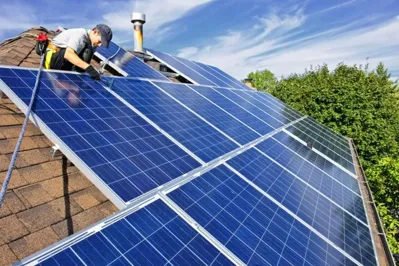In recent years, the push for a greener environment has gained significant momentum, leading to an increase in the adoption of home solar panels. This shift not only contributes to environmental sustainability but also offers numerous financial benefits to homeowners. As concerns about climate change and rising energy costs continue to grow, solar energy has emerged as a viable solution for many households worldwide.
![]()
The Importance of Solar Energy
Solar energy harnesses the power of the sun to generate electricity, providing a renewable source of energy that is both sustainable and eco-friendly. Unlike fossil fuels, solar power does not produce harmful emissions, making it a cleaner alternative that can significantly reduce an individual's carbon footprint. By utilizing solar panels, homeowners can play a crucial role in combating climate change and promoting a healthier planet.
Moreover, the technology behind solar panels has improved dramatically in recent years. Modern solar panels are more efficient, durable, and affordable than ever before. This advancement has made it easier for homeowners to integrate solar power into their daily lives.
![]()
Government Incentives
Many governments around the world are recognizing the benefits of solar energy and are implementing various incentives to encourage its adoption. These incentives can include tax credits, rebates, and grants, which significantly reduce the upfront costs of installing solar panels. For instance, in the United States, the federal government offers a tax credit that allows homeowners to deduct a percentage of the cost of their solar energy system from their federal taxes.
Countries like Germany and Canada have also implemented programs to promote solar energy use. In Germany, the Renewable Energy Sources Act (EEG) provides feed-in tariffs that guarantee fixed payments for homeowners who generate their own solar energy and feed surplus electricity back into the grid. Similarly, Canada offers several provincial incentives that can help offset the costs of solar panel installation.
Financial Benefits
One of the most compelling reasons to install solar panels is the potential for significant savings on electricity bills. Homeowners can reduce their reliance on the grid, leading to lower monthly energy costs. In many cases, households that invest in solar energy can achieve complete energy independence, drastically cutting down their electricity expenses.
Furthermore, solar panels can increase a property's value. Studies have shown that homes equipped with solar energy systems tend to sell for higher prices than comparable homes without solar. This increase in property value can make solar panels a smart long-term investment.
Challenges and Considerations
While the benefits of solar energy are substantial, there are also challenges to consider. The initial installation costs can be a barrier for some homeowners, despite available incentives. Additionally, the efficiency of solar panels can vary based on geographic location, roof orientation, and shading. Prospective buyers should conduct thorough research and consult with professionals to determine the best solar solutions for their specific circumstances.
![]()
Conclusion
The rise of home solar panels represents a critical shift toward a greener environment and a sustainable future. As governments continue to promote solar energy through various incentives, more homeowners are likely to consider this eco-friendly option. With the potential for reduced electricity bills and increased property value, investing in solar panels not only benefits the environment but also makes sound financial sense. By embracing solar energy, individuals can contribute to a more sustainable planet while reaping the rewards of lower energy costs.


